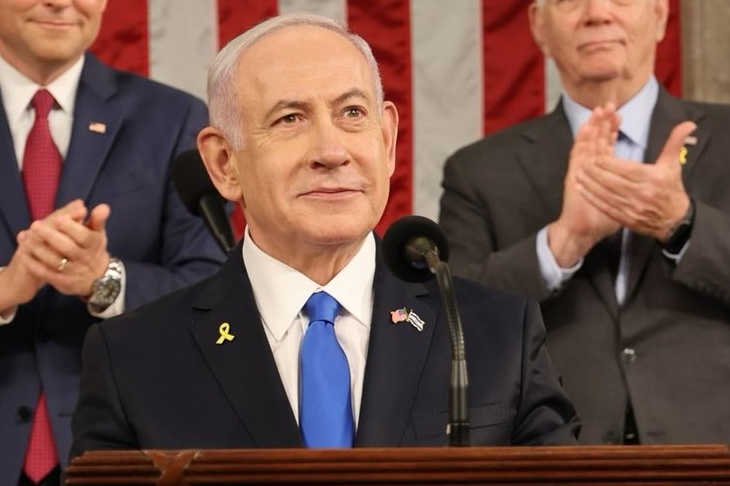Sponsored Content
Arrest Warrants Against Netanyahu and Gallant: Austria Sharply Criticizes ICC Decision
The International Criminal Court (ICC) in The Hague recently issued arrest warrants for Israeli Prime Minister Benjamin Netanyahu and former Defense Minister Yoav Gallant for alleged war crimes and crimes against humanity in the Gaza Strip. This decision has sparked fierce international debate and provoked harsh criticism - including from Austria. The Austrian Foreign Ministry published a clear statement describing the arrest warrants as “incomprehensible and incomprehensible”.
 ICC issued arrest warrants for two senior Israeli officials, including Israeli Prime Minister Benjamin Netanyahu, on 21 November 2024 following an investigation of war crimes and crimes against humanity. / Picture: © Wikimedia Commons, Office of Speaker Mike Johnson, Public domain
ICC issued arrest warrants for two senior Israeli officials, including Israeli Prime Minister Benjamin Netanyahu, on 21 November 2024 following an investigation of war crimes and crimes against humanity. / Picture: © Wikimedia Commons, Office of Speaker Mike Johnson, Public domain
The Austrian Foreign Ministry stated that it was “abstruse” to equate the members of a democratically elected government with the leader of a terrorist organization. The official statement went on to say that international law is “non-negotiable” and applies “always and everywhere” - including in the fight against Hamas terror. At the same time, however, it emphasized that…
or Log In
Fast News Search





